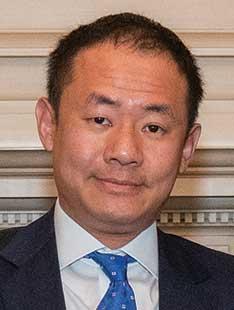Graduate Student Imprisoned by Iran Sues Princeton, Alleging Negligence

The 44-page civil complaint, filed in Superior Court in Mercer County in November 2021, provides Wang’s account of the guidance and actions of Princeton officials before he traveled to Iran; during his time conducting archival research; after his passport and laptop were confiscated by Iranian police; and throughout his subsequent interrogation, trial, conviction, and imprisonment. Wang and Qu allege that at various points, the actions of Princeton officials put Wang at greater risk. The complaint cites, for example, faculty who encouraged Wang to study in Iran, despite the country’s “history of kidnapping and holding hostage American citizens,” and alleges that an official in the provost’s office advised against seeking the aid of the Swiss Embassy in Iran before his arrest. Wang was eventually released in a December 2019 prisoner exchange after spending 40 months in jail.
In a statement, University spokesman Michael Hotchkiss wrote, “Xiyue Wang, Hua Qu, and their son are valued members of the Princeton University community, and the University’s singular focus has always been the safety and well-being of Mr. Wang. We are surprised and disappointed by this complaint and believe it is without merit.” Asked in January whether the University had responded to the complaint in court, Hotchkiss said Princeton “will file a response at the appropriate time.”
Wang, a naturalized American citizen, was arrested in August 2016 and accused of spying for the United States. But his situation was not widely reported in the press until July 2017, when Iran announced that a court had convicted him of spying. A Princeton spokesman said at the time that Wang had been unjustly imprisoned and the University had been working for his release alongside Wang’s family, the U.S. government, and others.
The campus community, led by fellow graduate students, held vigils throughout Wang’s time in prison. In public forums and media interviews, Qu appealed to President Donald Trump to negotiate her husband’s release. The State Department, working with Swiss intermediaries, arranged the swap that eventually set Wang free, in exchange for an Iranian scientist who’d been convicted in the U.S. of violating trade sanctions.
After returning to Princeton, Wang told NPR’s Morning Edition that his captors had not cared much about his alleged espionage. “I was a hostage,” he said. “They made it very clear.”











1 Response
Norman Ravitch *62
4 Years AgoOne Can Hardly Believe It
This is truly bizarre. Has anything like this every happened before, with Princeton researching students imprisoned in a foreign land for espionage or other charges, then upon release suing the University? I guess that is easier than suing a foreign country.